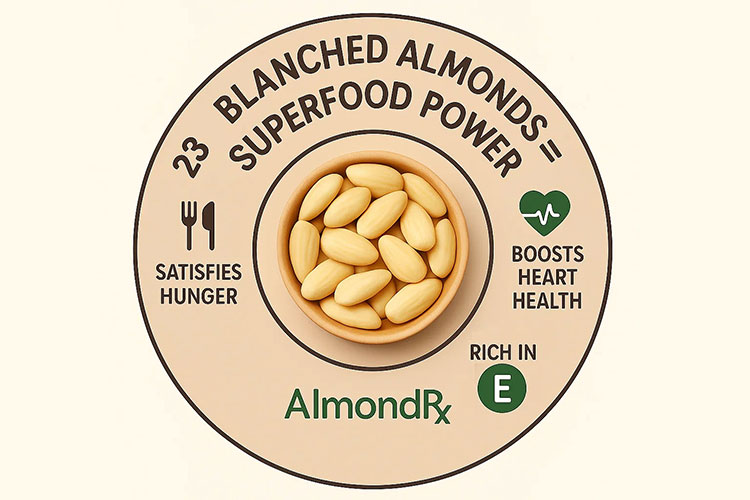
Introduction:Why Almond Portion Sizes Matter for Your Health
As a leading provider of premium almonds, the team at AlmondRx understands the importance of understanding proper portion sizes when it comes to this nutritious snack. Almonds are incredibly versatile and can be enjoyed in a variety of forms, from whole to sliced to slivered. However, it's crucial to be mindful of how much you're consuming to truly reap the full health benefits.
In this article, we'll dive into the standard serving size for almonds, explore how the portions can vary, and discuss the key nutrients you'll find in a single serving. By the end, you'll be equipped with the knowledge to incorporate almonds into your diet in a way that supports your overall health and wellness goals.
How Many Almonds in a Serving?
The standard serving size for whole, raw almonds is approximately 23 nuts or 1/4 cup. This portion size provides around 160 calories, 6 grams of protein, 14 grams of healthy fats, and 3 grams of fiber. It's important to note that the serving size can differ slightly depending on the form of almonds you're consuming.
For example, a serving of sliced almonds is typically 1/4 cup, while a serving of almond slivers or almond butter is 2 tablespoons. It's crucial to pay attention to the nutrition facts label and serving size guidelines to ensure you're consuming the appropriate amount.

Benefits of Sticking to the Recommended Serving
Adhering to the recommended almond serving size is important for several reasons. Almonds are packed with a wide array of essential nutrients, including:
- Protein: Almonds are a great source of plant-based protein, which can help support muscle growth and maintenance.
- Fiber: The fiber in almonds can promote feelings of fullness and support digestive health.
- Healthy Fats: The monounsaturated and polyunsaturated fats in almonds can help lower cholesterol levels and reduce the risk of heart disease.
- Vitamins and Minerals: Almonds are rich in vitamins like vitamin E, magnesium, and potassium, all of which play crucial roles in overall health.
By sticking to the recommended serving size, you can enjoy the full nutritional benefits of almonds without consuming excess calories or fat. This can be especially important for individuals trying to manage their weight or maintain blood sugar levels.
Tips for Incorporating Almonds into Your Diet
Fortunately, there are countless ways to incorporate almonds into your daily routine. Here are a few suggestions:
- Sprinkle a serving of whole or slivered almonds on top of your morning oatmeal or yogurt.
- Pack a small bag of almonds as a midday snack to help curb hunger and provide sustained energy.
- Use almond flour or almond meal in baking recipes for a nutrient-dense twist on your favorite treats.
- Add a tablespoon or two of almond butter to a smoothie or enjoy it with apple slices or celery sticks.
Conclusion:Make AlmondRx a Smart Part of Your Daily Routine
Almonds are a nutritional powerhouse, and understanding proper portion sizes is key to maximizing their health benefits. By sticking to the recommended serving of approximately 23 whole almonds or 1/4 cup, you can enjoy the protein, fiber, healthy fats, and essential vitamins and minerals that make this snack a true superfood.
Incorporate AlmondRx into your daily routine, and experience the difference that properly portioned, high-quality almonds can make in your overall health and wellness.



